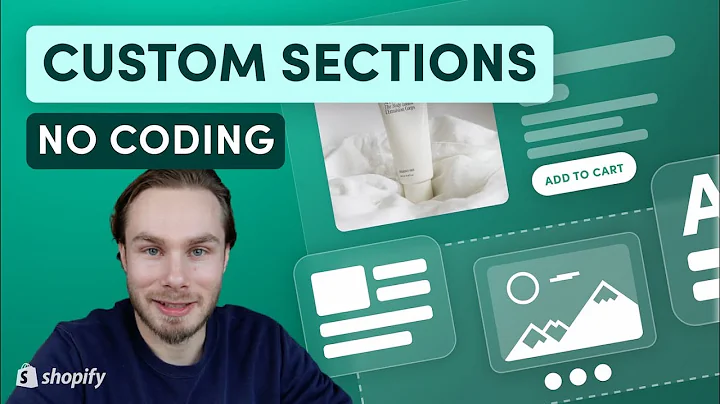Choosing the Best Driveway Surface: Asphalt, Concrete, or Pavers
Table of Contents:
- Introduction
- Pros and Cons of Asphalt Concrete
- Initial Investment
- Maintenance
- Cracking Issue
- Pros and Cons of Concrete
- Initial Investment
- Maintenance
- Salt Degradation
- Cracking Issue
- Pros and Cons of Pavers
- Initial Investment
- Maintenance
- Weed Development
- Settlement Issue
- Stamped and Colored Concrete
- Installation Methods
- Cracking Issue
- Tips to Extend the Life of Hard Surfaces
- Deepening Base Material
- Deepening Concrete Pour
- Conclusion
Introduction
When it comes to choosing the right surface material for your property's driveway, patio, or sidewalk, there are several options to consider. In this article, we will discuss the pros and cons of three popular choices: asphalt concrete, traditional concrete, and brick stone pavers. We will explore the initial investment required for each material, the level of maintenance they entail, and any specific issues they may present. By the end of this article, you will have a better understanding of which surface material may be most suitable for your needs. So, let's dive in!
Pros and Cons of Asphalt Concrete
Initial Investment
Asphalt concrete offers the least expensive option for initial installation, with an average price ranging from four to eight dollars per square foot. This makes it an attractive choice for budget-conscious homeowners.
Maintenance
However, it's important to note that asphalt concrete requires the highest level of maintenance among the three surfaces discussed. Approximately every three years, resurfacing is required to fill and prevent cracks from spreading. Regular application of a rubberized compound is necessary to maintain the integrity of the surface.
Cracking Issue
One drawback of asphalt concrete is its tendency to develop cracks over time. While the cracking issue can be mitigated through maintenance efforts, it is something to consider when evaluating the long-term durability of this material.
Pros and Cons of Concrete
Initial Investment
Traditional concrete, on the other hand, has a slightly higher initial expense compared to asphalt concrete, averaging between eight to twelve dollars per square foot. However, it offers the lowest level of maintenance among the three surfaces.
Maintenance
Concrete surfaces require less frequent maintenance than asphalt, but they are susceptible to a specific issue: salt degradation. Whether it's applied on sidewalks, flat surfaces, or even retaining walls made of concrete masonry units, salt can cause rapid deterioration. This may result in cracks and, in severe cases, the collapse of the retaining wall.
Cracking Issue
Concrete also tends to develop cracks, which are caused by the curing process. To prevent cracks from spreading, contractors often saw joint lines into the surface. These joint lines act as crack stops and help maintain the integrity of the concrete.
Pros and Cons of Pavers
Initial Investment
Brick stone pavers are at the higher end of the price spectrum, with an average cost ranging from twelve to twenty-four dollars per square foot. However, they offer a unique combination of durability and aesthetic appeal.
Maintenance
Pavers require a medium level of maintenance. Periodically, you may need to spot spray your driveway, sidewalk, or patio with a crack and crevice spray to control weed growth. Pavers can also experience individual settlement, but the advantage is that they can be easily lifted, re-leveled, and reinstated without cracking or breaking.
Weed Development
One common issue with pavers is weed development in the joint spacing. However, regular maintenance can help keep weeds under control and preserve the overall appearance of the surface.
Settlement Issue
While pavers do settle over time, they have the advantage of being easily fixed. The ability to reposition individual pavers without the risk of cracking or breaking makes them a lifetime product with a moderate level of maintenance requirement.
Stamped and Colored Concrete
It's important to exercise caution when considering stamped and colored concrete. The installation of stamped colored concrete can be achieved through two methods, surface spraying or coloring the entire concrete. Surface spraying can be problematic as it may reveal cracks when they occur, which can undermine the visual appeal of the stamped finish. If you opt for stamped colored concrete, it is advisable to have the entire concrete colored to minimize the visibility of any cracks that may occur.
Tips to Extend the Life of Hard Surfaces
To maximize the durability of your chosen hard surface, consider implementing the following tips:
Deepening Base Material
When installing a driveway or any hard surface, ensure that the base material is at least four to six inches deep. The base material provides a cushion between the subgrade and the hard surface, protecting it from the movement of the subgrade. By deepening the base material, you add an extra layer of protection, improving the lifespan of the hard surface.
Deepening Concrete Pour
If you choose concrete as your hard surface, consider pouring it at a depth of six inches instead of the typical four inches. This additional thickness provides added strength and resistance to cracking, especially when compared to shallower concrete pours.
Conclusion
Choosing the right surface material for your property involves considering factors such as initial investment, maintenance requirements, and specific issues associated with each material. Asphalt concrete offers affordability but requires more maintenance and is prone to cracking. Traditional concrete has a lower maintenance cost but is susceptible to salt degradation and cracking. Brick stone pavers provide durability, aesthetics, and the ability to fix settlements without breaking. Stamped and colored concrete should be approached with caution to ensure a satisfactory outcome. By implementing the provided tips, you can extend the lifespan of any hard surface material you choose. Choose wisely and enjoy a long-lasting and visually appealing surface for your property.
Highlights:
- Asphalt concrete offers the most affordable initial investment but requires high maintenance.
- Traditional concrete has lower maintenance and is resistant to salt degradation, but can still develop cracks.
- Brick stone pavers provide durability, aesthetics, and easy repairability.
- Stamped and colored concrete should be installed with caution to prevent cracks from undermining the stamped finish.
- Deepening the base material and concrete pour can significantly extend the life of hard surfaces.
FAQ
Q: Can asphalt concrete be repaired easily?
A: Yes, asphalt concrete can be resurfaced every three years to repair cracks and maintain its integrity.
Q: How often do I need to maintain concrete surfaces?
A: Concrete surfaces require less frequent maintenance but are susceptible to salt degradation. Proper maintenance is necessary to prevent cracks and deterioration.
Q: How do brick stone pavers compare to other materials in terms of maintenance?
A: Brick stone pavers require medium-level maintenance, but their advantage lies in easy repairs without cracking or breaking.
Q: Is stamped and colored concrete a durable option?
A: Stamped and colored concrete can be durable if the entire concrete is colored to minimize the visibility of cracks that may occur.
Q: How can I extend the life of hard surfaces?
A: Deepening the base material and concrete pour can provide added protection and increase the life of hard surfaces.


















